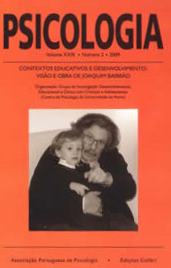Development of child compliance and non-compliance behaviours, and maternal control strategies
DOI:
https://doi.org/10.17575/rpsicol.v23i2.334Keywords:
-Abstract
Children develop behavioural self-regulation skills early in their lives within the context of social interactions with significant adults. This study analyses the relationship between child compliance and non-compliance behaviours, as well as maternal control strategies, observed during a toys pick-up procedure. A total of 120 mother-child dyads participated in this study. Children were randomly selected from 30 day-care classrooms and evenly distributed by gender and age (ranged between 14 and 49 months). Results showed the influence of child age and maternal control strategies in child compliance and non-compliance behaviours. Elder children presented less passive non-compliance as well as simpler refusal and negotiation behaviours. Situational compliance is explained by maternal use of specific demands and directive strategies; while different child non-compliance behaviours are explained by different maternal strategies.


